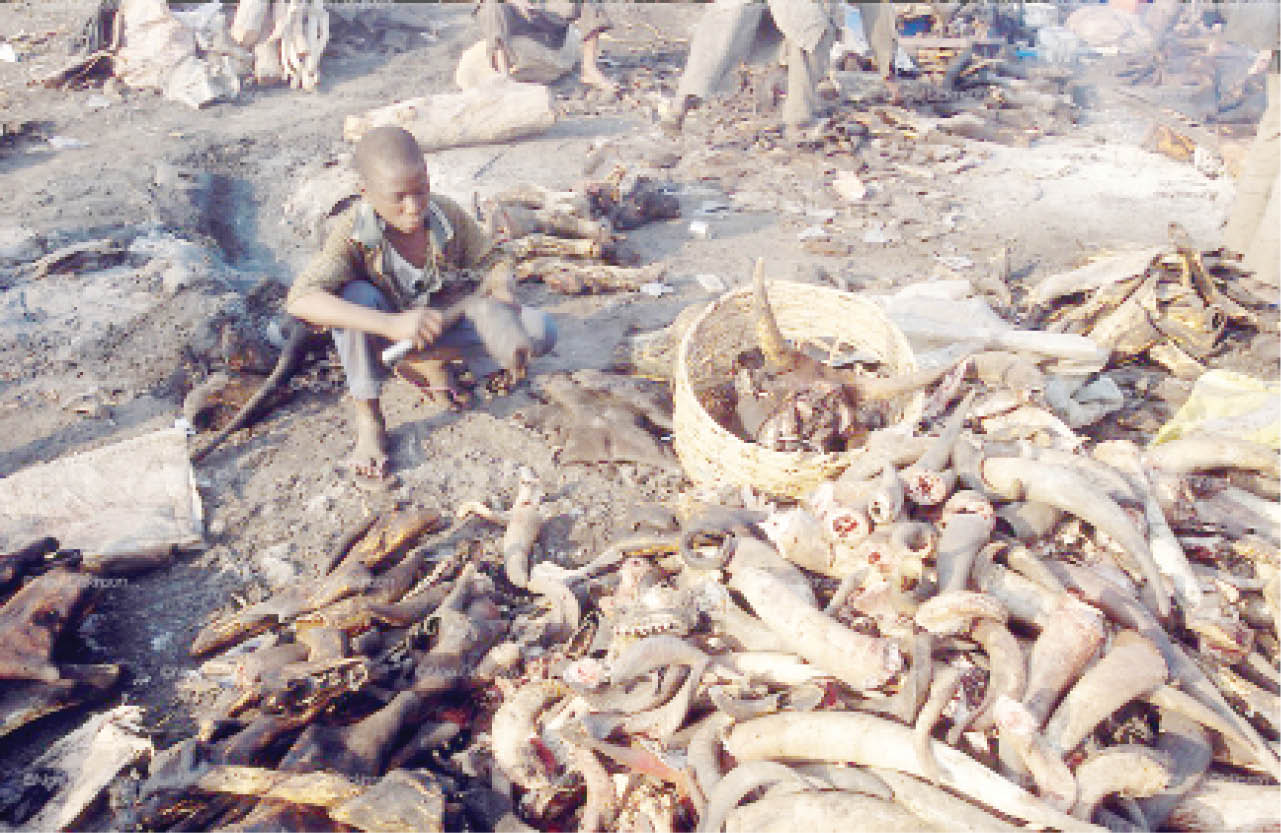Gombe youths make brisk business with abattoir wastes
Animal byproduct and waste from Gombe abattoir are creating income for youths and entrepreneurs as demand for the commodity heightens across the country, checks by the News Agency of Nigeria (NAN) have indicated. The beneficiaries indicated this in separate interviews in Gombe. Despite Dwindling Resources: Governors Spend Billions On Private Jets How Nigerians lose millions […]

Abattoir wastes are becoming goldmine for youth in Gombe State
Animal byproduct and waste from Gombe abattoir are creating income for youths and entrepreneurs as demand for the commodity heightens across the country, checks by the News Agency of Nigeria (NAN) have indicated.
The beneficiaries indicated this in separate interviews in Gombe.
- Despite Dwindling Resources: Governors Spend Billions On Private Jets
- How Nigerians lose millions to fraudulent real estate developers
Mr Gali Abdullahi, a bone seller from the abattoir, said the business was lucrative for him as he had been in it for the past 22 years and the demand for the commodity was always high.
Abdullahi explained that all he needed to do was to burn the bones and crush them before bagging them for supply to his various customers across the country.
He identified agro-allied companies as his biggest customers and those into animal feeds production, explaining that they need the bones as a major ingredient for animal feeds production.
“Bone meal is an important ingredient in animal feeds. Bone meal is the finely grounded and powdered bone of slaughtered animals, which is used as a mineral supplement for animals,’’ he said.
According to him, the demand for the commodity is coming from Lagos, Oyo, Plateau and Kaduna states, where most of the companies that process the commodity are located.
He said a truckload of the bones, containing about 200 bags of the commodity, was sold between N2 million and N2.3 million.
Abdullahi said he bought a tonne of the commodity at N50,000 at the abattoir and “sell to companies between N80,000 and N100,000, depending on the state and distance.’’
“In Lagos and Oyo, we sell to companies at prices ranging from N90,000 upwards. Transportation of the commodity is high. For example, from Gombe here to Jos, transportation costs me N150,000.’’
He said the business had benefitted him and helped to cater for his household over the years, adding that he usually made between N150,000 and N200,000 per trip.
He said he also operated the same business in Bauchi, Adamawa and Taraba states.
Abdullahi also said the business was impacting greatly on youths in the community as he had engaged some of them and they were getting daily incomes for themselves and their families.
Malam Salisu Aliyu, who deals on animal dung from the abattoir, said the business was lucrative as many farmers had begun preparing for farming activities.
Aliyu said he sold a bag of animal dung at N1,000, adding, “We get about 20 bags of the dung per day. Sometimes we get 30 bags or 10 bags.’’
He explained that most of his customers were from Kaduna and Plateau states, stressing that the business of animal waste “is lucrative and has engaged many youths.’’
Aliyu said the blood of animals slaughtered at the facility was also processed, dried and sold to companies that produce animal feeds in other states.
He added that it took a week to process and dry the blood, saying one could make N140,000 income.
He called on the government to assist them with necessary tools to process their commodity in a healthy environment so as to safeguard the health of labourers, as well as ensure that the commodity is hygienic
Sani Mohammed, who loads the truck with the commodity, said he worked for four hours daily and had been in the business for over 30 years.
“We load at least 100 bags every day, and we are 10. We make between N3,000 and N4,000 as income per person on a daily basis and this is really helping us,” he said.
On his part, Malam AbdulmalikSaidu, the chairman of labourers at the abattoir, said the business of bone and other wastes had helped in engaging youths from the streets.
Saidu said they had over 300 youths working and earning daily income, adding, “Most of these youths had nothing doing, but today they are working for their money.’’
He appealed to the state government to help set up an animal waste processing company that would refine the commodities better and employ more youths. (NAN)
